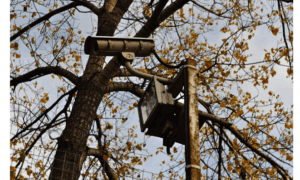If you reside in a residential complex, park or retirement community, you might be part of something called an embedded network. In these networks, the rules for your electricity and gas supply are different.
In these sites, the way that the electricity is wired is such that it allows the site owner to sell energy to all tenants or residents living or using the area in order to make money. Such sites are known as embedded networks.
How it works is that site owners purchase energy from retailers. Sometimes, site owners may generate energy on the site itself. Site owners that sell energy through embedded networks are called exempt sellers as they do not have to be authorized and regulated by the Australian Energy Regulator (AER). But, such owners are legally required to obtain a valid exemption provided by the AER and adhere to their rules so that tenants or users of the embedded network are charged fairly.
Am I Part Of An Embedded Network?
After shifting into an embedded network, your exempt owner is legally required to provide you with all the necessary information about your customer rights. Information you are entitled to include things like basic personal details like the owner’s name and contact number. These details must appear in your energy bill so remember to keep a lookout every month.
If you’re unsure about whether you’re in an embedded network, please reach out to the company responsible for sending you your energy bill based on your energy consumption and usage. Don’t be afraid to ask for more details directly. You can also contact the manager of your residential complex, community or park.
What’s Distinct About Residing In A Embedded Network?
While using electricity within such networks, you still have most of the same entitlement that you would have if you were hooked with other energy providers. These rights are inclusive of:
- Obviously, the network should be risk-free for your usage.
- There must be a standardized course of action in the event you would like to raise a complaint. Operators of such networks and the exempt providers that give service to customers must be part of the Energy & Water Ombudsman NSW (EWON) as members. This ensures that all providers are held accountable and any issues are made known to others in EWON as well.
- Fees for the embedded network are charged in accordance with the guideline put out by the AER.
- It is mandatory for electricity meters to meet the precise quality based on the time period when the embedded network became established.
Can I Switch To Another Retailer Instead?
If you’re on a network that is embedded, you can choose your own retailer rather than stick with the network owner. Owners cannot discourage or prevent you from switching retailers.
However, it may be tough to secure another retailer within an embedded network setting as changing can be pretty hard. If you do decide to change retailers, remember to consider:
- A certified retailer that inserts themselves into market contracts. Certified retailers have zero obligations to be your retailer, though. You probably have to look around several options.
- The potential retailer will enquire about your embedded network to confirm that the meter is recorded as per the standardized energy market in your country. With that information, the retailer can proceed to establish your account.
- Either your retailer or yourself would have to let the person who operates your embedded network know of the upcoming change.
Although it may seem straightforward, there are some points that you have to keep in mind:
- Your current network is not allowed to guide you toward another authorized retailer
- The current meter may require replacement, so do expect to spend money on this. If you are renting the place, you will have to bring up this entire process with your landlord who might not agree with your request.
- You will receive separate bills from your certified retailer for electricity consumption and another from your network for a network bill. You will definitely have to fork out money for network charges even though you have switched your retailer.
What Are Network Charges And Why Do I Have To Pay?
Network charges are a fixed part of providing energy to your home or business. Typically, owners of the embedded networks pay the network charges first, then bill you for your share. If you buy your electricity from the embedded network, network charges are not usually a concern. However, if you choose an outside retailer, they do charge consumers a network charge too. To ensure that you do not pay twice, do check that the authorized retailer gives you an ‘energy only’ offer. If this is not possible, approach the owner of your embedded network and work out arrangements with your retailer on the network charges.
Using The Network As A Residential Consumer
If you are staying in a caravan park as a long-term resident or in a retirement village, you are considered a residential consumer. Your protection as a consumer is inclusive of:
- Flexible payment plans if you have financial difficulties
- Clear and set time periods for receiving and payment of bills
- Complaints around handling arrangements
- Clear and reasonable termination procedures
If you are a tenant, you may also have energy-related rights, but for more information, approach your landlord.
Using the Network As A Commercial Consumer
If you operate a small business or shopping center, you are a commercial consumer. Your protections are inclusive of:
- Clear and reasonable termination practices
- Clear, set time periods for receiving and payment of bills
- Complaints around handling requirements
Conclusion
Living in an area with an embedded network may be challenging in terms of having freedom over your electricity provider. There can be several factors to take into consideration when deciding to switch to an authorized reseller. You may also have questions about the accuracy that your embedded network charges.
These are very valid concerns, but the great thing is that all exempt sellers are required to join EWON. This means that if there are any complaints or malpractice, you can simply lodge a complaint against the owner and hold them accountable.



































